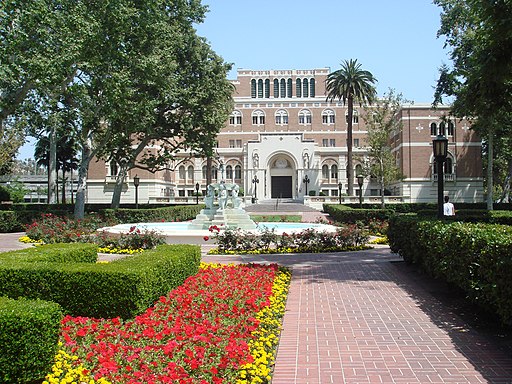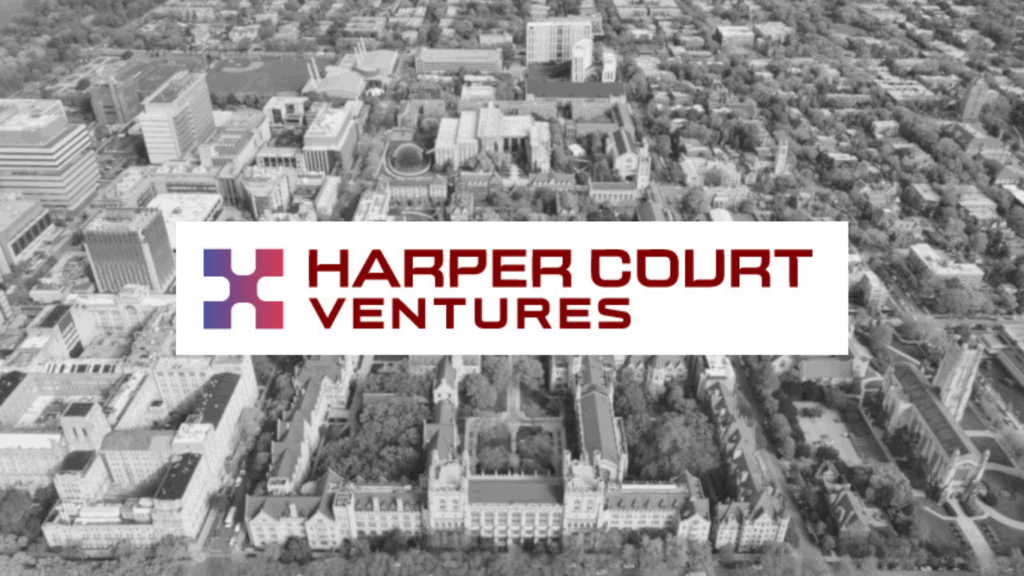Insider Brief
- USC announced a $1 billion-plus initiative for computing research and education across disciplines.
- The effort will include a new school, recruitment of 30 new faculty in the first three years and the integration of computing across multiple disciplines and academic programs.
- Critical Quote: “I want every student who comes through our programs, whether they are in science, business, the humanities or the arts, to have a solid grounding in technology and the ethics of the work that they do. We will integrate digital literacy across disciplines to create responsible leaders for the workforce of the future.” — USC President Carol L. Folt
- Image: Photo by Bobak Ha’Eri – Wikipedia.
PRESS RELEASE — USC President Carol L. Folt on Thursday announced a $1 billion-plus initiative for computing research and education across disciplines, with a focus on AI, machine learning and data science, augmented and virtual reality, robotics, gaming and block chain.
“I want every student who comes through our programs, whether they are in science, business, the humanities or the arts, to have a solid grounding in technology and the ethics of the work that they do,” Folt said. “We will integrate digital literacy across disciplines to create responsible leaders for the workforce of the future.”
Seeded with a $260 million gift from the Lord Foundation of California, USC Frontiers of Computing encompasses a multipronged effort to push the boundaries of computing into a new era:

- A new school: The USC School of Advanced Computing headquartered in a seven-story, 116,000 square-foot facility, the Dr. Allen and Charlotte Ginsburg Human-Centered Computation Hall. The building, now under construction, will formally open in fall 2024.
- Recruitment: Hiring 30 new faculty in the first three years who are leaders in computer science and computing-based research, with 60 additional hires by 2030. The new faculty members will hold appointments in multiple schools at USC in recognition that computational methods, particularly AI, are transforming the way people live and work.
- Economic impact: USC Frontiers of Computing will bolster the university’s influence on technology across various industries and expand its footprint in Silicon Beach on L.A.’s West side, which already is home to two of USC’s tech incubators, the Information Sciences Institute and Institute for Creative Technologies. (USC currently has a $9 billion economic footprint in the L.A. area, according to a study in 2017, and its impact is expanding to the East Coast. It recently opened the USC Capital Campus in Washington, D.C.)
- Education: The initiative will broadly integrate computing across multiple disciplines and academic programs. USC aims to prepare students for a more tech-intensive world of work, spark new technological advances and shape responsible policy through new programs and course offerings, as well as through experiential education.
- Ethics: USC is instilling a culture of responsibility and conscience among students, faculty and its broader community across academic programs and research that will influence application, development, policy and research, says Ishwar K. Puri, senior vice president for research and innovation. The new Center for Generative A.I. and Society is prominent within the initiative’s ethics endeavor. The recently opened center draws together experts from across the university to navigate difficult discussions about ethics and responsibility and generative A.I.
USC leaders began developing Frontiers of Computing three years ago, before the recent rise of artificial intelligence and generative A.I.
USC already is the leading provider of tech talent for the nation. More than 1,300 students per year graduate with bachelor’s, master’s and PhDs in computer science.
“We all know the world is changing very fast right now,” Folt said. “We need to take that momentum of change — and couple it with USC’s history of innovation — to create what has never been done before. And we’re going to do it.”
Learn more online.
For more market insights, check out our latest quantum computing news here.
















